
Building on OMFIF’s status as an independent think tank for central banks, the Digital Monetary Institute brought together 2,000+ policy-makers, technology experts and investors on 28-29 April 2021 to push the boundaries of the discussion on practical and theoretical aspects of digital currencies and the future of capital markets at a two day virtual symposium.
Symposium Partners

OMFIF and DMI members

Watch the public Symposium sessions On Demand below:
Day one- 28 April 2021
Day two- 29 April 2021
The Sand Dollar with John Rolle- Governor of the Central Bank of the Bahamas
John Rolle is governor of the Central Bank of the Bahamas. Before his appointment, he served as the financial secretary in the Bahamian ministry of finance. He has also been seconded to the executive board of the International Monetary Fund, as a senior adviser to the executive director for Canada, Ireland and the Caribbean constituency.
Retail CBDCs: Policy implications and rollout strategies
Central banks around the world have intensified their research and experimentation in central bank digital currency. Given financial stability and disintermediation concerns, consumer-ready CBDCs have captured global attention with much of the discussion focusing on public-private partnerships. This panel will explore the policy implications of a new form of programmable money for central banks and the role of banks and fintechs in the implementation of CBDCs.
Speakers:
Hanna Armelius
Senior Adviser
Sveriges Riksbank
Jose Fernandez da Ponte
Vice President, General Manager Blockchain, Crypto and Digital Currencies
PayPal
Katie-Ann Wilson
Programmes Manager, Digital Monetary Institute
OMFIF
Atul Bhuchar
Executive Director and Group Payments Head
DBS
Neha Narula
Director of the Digital Currency Initiative
MIT
Presentation: China’s digital currency and the evolution of CBDCs
Douglas Arner is Kerry Holdings professor in law at the University of Hong Kong (HKU), director of the faculty of law’s Master of Laws in compliance and regulation, and project coordinator of a major five-year research scheme, entitled ‘Enhancing Hong Kong’s Future as a Leading International Financial Centre’. He is a member of the Hong Kong Financial Services Development Council, executive committee member of the Asia Pacific Structured Finance Association and senior visiting fellow of the Melbourne Law School. Douglas served as head of the HKU’s law department from 2011-14 and co-director of the Duke University-HKU Asia-America institute in transnational law from 2005-16. From 2006-11, he was director and co-founder of HKU’s Asian institute of international financial law.
This conversation was part of the OMFIF Digital Monetary Institute Symposium 2021. Click here for more information and to register for the 2022 Symposium.
Presentation: Solving offline payments for scalable and interoperable CBDCs
Joachim Samuelsson is a serial entrepreneur and tech pioneer currently focused on digital payments. As an entrepreneur Joachim is driven by the prospect of building value with minimal risk. Since 2012 Crunchfish is Joachim’s main engagement where he is the main owner and served as the Chairman of the Board until 2020 when he assumed the role as group CEO. Joachim has a telecom background and prior to Crunchfish, he built several successful ventures that were sold to third parties.
Joachim is the inventor of more than 20 patented innovations in digital payments and proximity interaction and has been awarded for his entrepreneurship several times. Joachim has a Master of Science degree in Industrial Engineering and Business Administration from Linköping University 1988.
This conversation was part of the OMFIF Digital Monetary Institute Symposium 2021. Click here for more information and to register for the 2022 Symposium.
The payments revolution from the consumers perspective
The payments revolution is built on the need to promote financial inclusion among consumers, merchants and sectors that lack access to financial services. However, this shift will stall unless prerequisites of digitalisation and consumer adoption is ensured. This panel will look at the payment service providers and CBDC landscape, addressing how best to combat financial exclusion and meet consumer needs. It will address issues surrounding digital identity, data privacy, security, and resiliency and explore how the public and private sector can move beyond walled garden phenomena, solving interoperability and fungibility challenges.
Speakers:
Edward Bowles
Global Director of Public Policy, F2 (Facebook Financial)
Facebook
Richard Budel
Chief Commercial Officer Digital
SICPA
Raj Dhamodharan
EVP Blockchain / Digital Asset Products & Digital Partnerships
Mastercard
Bhavin Patel
Senior Economist & Head of Fintech Research
OMFIF
Aristides Andrade Cavalcante Neto
Chief of Cybersecurity and Innovation
Banco Central do Brasil
Presentation: Why CBDC will not be like cash: Exploring different approaches to privacy
David G.W. Birch is an author, advisor and commentator on digital financial services. An internationally-recognised thought leader in digital identity and digital money, he holds a number of board and advisory roles across these fields. He is a Forbes contributor and a columnist for Financial World and has just been ranked one of the top 100 global fintech influencers for 2021. Previously named one of the global top 15 favourite sources of business information by Wired magazine and identified as one of the top ten most influential voices in banking by Financial Brand, he created one of the top 25 “must read” financial IT blogs and was found by PR Daily to be one of the top ten Twitter accounts followed by innovators.
The LSE Review of Books called his book “Before Babylon, Beyond Bitcoin: From money we understand to money that understands us” a work that should be “widely read by graduate students of finance, financial law and related topics as well as policymakers involved in financial regulation”. His most recent book “The Currency Cold War”, published in May 2020, examines the implications of the introduction of digital currency and was rated one of the top ten cryptography books by BookAuthority.
Dave graduated from the University of Southampton with a B.Sc (Hons) in Physics.
This conversation was part of the OMFIF Digital Monetary Institute Symposium 2021. Click here for more information and to register for the 2022 Symposium.
Next steps for cross border payments
Cross-border payments between financial institutions, businesses and individuals are slow-moving and costly. New technologies have opened the possibility of central bank digital currencies and stable coins addressing these frictions, and policymakers are exploring upgrades to existing systems. This panel will discuss when new payment innovations are necessary, how to balance the trade-off between regulation and data flow restrictions and next steps for promoting international co-ordination on and implementing standards.
Speakers:
Ziad Alyousef
Deputy Governor
Saudi Central Bank
Ross Leckow
Senior Adviser Fintech, Strategy and Legal
Bank of International Settlements
Charlotte Hogg
CEO, Europe
Visa
Philip Middleton
Chairman, Digital Monetary Institute
OMFIF
Francisco Maroto
Head of Blockchain & Digital Assets
BBVA
Digital euro: What are the opportunities and risks for Europe?
Wolfram Seidemann is chief executive officer of Giesecke+Devrient Currency Technology. He was appointed group executive of the banknote division at G+D in 2016. Prior to that, he was chairman of the management board and division head of paper of Papierfabrik Louisenthal. Seidemann joined G+D in 1999 as head of international research and development. He subsequently held various senior management positions at G+D subsidiaries, among them managing director of G+D Asia, president of G+D Teco and member of the board of G+D India.
Natacha Valla is an economist and Dean of Sciences Po’s School of Management and Innovation. Until 2020, she was Deputy Director-General for Monetary Policy at the ECB. Between 2015 and 2018 Natacha Valla was Head of the Policy and Strategy Division of the EIB and a permanent
member of the Conseil d’Analyse Economique (CAE). She was Executive Director at Goldman Sachs Global Economic Research between 2008 and 2014. Natacha Valla worked as an economist at the ECB between 2001 and 2008, seconded in 2005 to the Research Directorate of the Banque de France. She has also been a consultant for the IMF and the OECD, and lectured at New-York University and the Universities of Florence, Paris-Dauphine, H.E.C. and Sciences-Po Paris. She is also a member of the Board of Directors of the groups LVMH, Scor, and ASF/Cofiroute. Natacha Valla received a Ph.D. in Economics from the European University Institute (Florence) in 2003.
Thomas Mayer is a Senior Fellow at CFS since July 2012. As Senior Fellow he is involved in research on European financial integration and current financial market issues. He also organized the CFS Lecture Series “On the Order of Money”. (Please find an overview of the lecture series by Thomas Mayer in the CFS Newsletter 1/2014). Thomas Mayer is founding director of the Flossbach von Storch Research Institute. Previously, he was senior advisor to Deutsche Bank’s management and key clients.
Speakers:
Dr. Wolfram Seidemann
Chief Executive Officer
Giesecke+Devrient Currency Technology
David Marsh
Chairman
OMFIF
Natacha Valla
Dean
Sciences Po – School of Management and Innovation
Thomas Mayer
Founding Director
Flossbach von Storch Research Institute
Presentation: Why Haiti’s central bank is considering CBDC
Jean Baden Dubois has been governor of the Bank of the Republic of Haiti since December 2015. He has 25 years of experience within the Haitian financial system. Having joined Citibank’s Haiti branch in 1990, he was selected from among 20 young professionals from all Citibank branches in the Caribbean and Latin America to take part in a management trainee programme known as Entering the CITI. This training is equivalent to an MBA in banking and finance. Dubois also holds a master’s degree in industrial engineering from the University of Illinois.
This conversation was part of the OMFIF Digital Monetary Institute Symposium 2021. Click here for more information and to register for the 2022 Symposium.
Banque de France's wholesale CBDC project
Denis Beau is deputy governor of the Banque de France. He has also been appointed to represent the Banque de France’s governor as chairman of the French prudential supervision and resolution authority. He is a member of the college of the French financial markets authority and of the supervisory board for the European Central Bank’s Single Supervisory Mechanism.
Denis Beau has also been appointed chair of the committee on controlling of the European Central Bank and chair of the analytical group on vulnerabilities of the Financial Stability Board.
DLT banking applications
Distributed ledger technologies have shifted from the margins to the centre of innovation across financial services. For interbank settlement, digital currency solutions have the potential to transform current systems’ speed, resilience, and cost efficiency, however risks and interoperability with new and legacy systems remains crucial. This panel will explore DLT applications to payments, clearing and settlement, addressing when different innovations are needed, bridging conventional and new payment systems and the impact on traditional intermediaries.
Speakers:
Laura Loh
Director of Blockchain
Temasek International
Jochen Metzger
Director General, Payments and Settlement Systems
Deutsche Bundesbank
Mark Williamson
Global Head of FX Everywhere, Partnerships & Propositions
HSBC
Bhavin Patel
Senior Economist & Head of Fintech Research
OMFIF
David Creer
Global DLT and Crypto Lead
GFT Group
Presentation: CBDCs: objectives and architectural considerations
David MacKeith is principal business development manager, government financial services, Europe, the Middle East and Africa, at Amazon Web Services. Prior to joining AWS, he worked on shaping and delivering major IT transformation projects and in the City of London as a commercial transaction lawyer.
This conversation was part of the OMFIF Digital Monetary Institute Symposium 2021. Click here for more information and to register for the 2022 Symposium.
Fnality’s global payment solution
Rhomaios Ram is CEO at Finality and former global head of product management for transaction banking at Deutsche Bank. He has more than 22 years’ experience of working across a wide variety of wholesale banking businesses and functions including sales, trading, product management and technology. Most of his experience has been in developing businesses where the product is at the intersection of finance and technology.
Presentation: CBDC, Blockchain and privacy
Sky Guo is chief executive officer at Cypherium and columnist at Caixin Media, China’s top financial media outlet. He won the first blockchain hackathon sponsored by the US government and is a frequent speaker on digital ledger technology, including at the first United Nations blockchain summit, Nasdaq and OMFIF.
Ms. Anikó Szombati is Chief Digital Officer, executive director responsible for digitalization and FinTech development at MNB, the central bank of Hungary. Her main responsibility is to promote digital transformation in the financial sector as well as within the central bank, including the implementation of cutting edge technologies. MNB aims at increasing the competitiveness and efficiency of the financial sector via developing regulatory concepts on how to safely embrace new innovations brought about by technological developments. She is member of the Financial Stability Council. Before joining the central bank in 2001 she was market risk manager at different commercial banks. She holds an MSC in Finance from Corvinus University Budapest and an EFFAS diploma.
This conversation was part of the OMFIF Digital Monetary Institute Symposium 2021. Click here for more information and to register for the 2022 Symposium.
Swiss National Bank: Integrating tokenised digital assets and central bank money
Thomas Moser is alternate member of the governing board and deputy head of department I of the Swiss National Bank. Before joining the governing board, he was executive director at the International Monetary Fund, assistant director at the Swiss National Bank, economist at the KOF Swiss Economic Institute and research and teaching assistant at the institute for empirical research in economics at the University of Zurich.
Tim Grant is head of SDX. He has more than 20 years of deep technology and management expertise across institutional capital markets and enterprise blockchain businesses. Prior to SIX Digital Exchange, Tim worked for UBS O’Connor, UBS Investment Bank, R3 Lab and Research Centre and DrumG Technologies. In his previous role as CEO of DrumG, he was responsible for the delivery and operations of enterprise-grade distributed ledger solutions for financial services.
Evolution in capital markets: Digitalisation of assets
With the rise of cryptocurrencies, tokenisation – defined as the representation of traditional assets on distributed ledger technology – has been brought to the fore of the debate around the digital disruption of capital markets. There are potential benefits to tokenising assets, such as securities or illiquid assets, including greater liquidity, accessibility, transparency and faster and cheaper transactions. However there remain concerns regarding regulatory alignment, compliance and security. This panel discusses the business case for decentralised finance and tokenisation beyond digital currency. It will explore DLT applications to assets and financial infrastructure and address the potential benefits and challenges of a token economy.
Speakers:
Dmitry Tokarev
Chief Executive Officer
Copper.co
Jennifer Peve
Managing Director, Business Innovation
Depository Trust and Clearing Corporation
Steve Kokinos
CEO
Algorand
Philip Middleton
Chairman, Digital Monetary Institute
OMFIF
Moad Fahmi
Senior Advisor of FinTech
Bermuda Monetary Authority
Presentation: CBDC and DeFi: the future of digital finance
Vsevolod graduated from National Research University Moscow Institute of Electronic Technology with Major in Secure Communication Systems Engineering. Since 2008 he worked for leading SI Enterprises in Information Security Engineer role taking key parts in development of InfoSec systems for major customers. Was involved in the development, research in and support of the certified NRU MIET CISCO™ research laboratory. Since 2016 he has been researching decentralized systems and protocols and took part in dApp development industry. Along with Kirill Varlamov he is the founder of OnGrid Systems blockchain development company
This conversation was part of the OMFIF Digital Monetary Institute Symposium 2021. Click here for more information and to register for the 2022 Symposium.
Presentation: NFTs and their legal framework
Charles Kerrigan is partner in the banking and international finance team at CMS London. The Blockchain Industry Landscape Overview 2018 names Charles as one of the UK’s leading influencers on blockchain.
This conversation was part of the OMFIF Digital Monetary Institute Symposium 2021. Click here for more information and to register for the 2022 Symposium.
From cryptocurrencies, stablecoins and Diem to CBDCs
Christian Catalini is chief economist of the Diem Association. He is one of the co-creators of Diem (formerly Libra). He is on leave from his role as associate professor at the Massachusetts Institute of Technology, where he founded the cryptoeconomics lab and designed the digital currency research study. He is also faculty research fellow in the productivity, innovation and entrepreneurship programme at the National Bureau of Economic Research.
US crypto-asset regulation: Approach, risks and outlook
Hester Peirce is commissioner at the US Securities and Exchange Commission. Prior to joining the SEC, Peirce conducted research on the regulation of financial markets at the Mercatus Center at George Mason University. She was a senior counsel on the US Senate Committee on Banking, Housing, and Urban Affairs. Peirce served as counsel to SEC Commissioner Paul Atkins. She also worked as a staff attorney in the SEC’s division of investment management. She was an associate at Wilmer, Cutler & Pickering (now WilmerHale) and clerked for Judge Roger Andewelt on the Court of Federal Claims.
The next phase of cryptocurrencies
Bitcoin hit an all-time high in market value this year, leading to speculation that we are witnessing the institutionalisation of a new asset class. However, as more investors turn to crypto-assets, risks for retail investors and the financial system are heightened, making devised legal and regulatory approaches ever more paramount. This panel will discuss these regulatory developments and challenges and look ahead to the future role of cryptocurrencies in a post-pandemic macroeconomic environment.
Speakers:
Peter Kerstens
Head, Financial Technology Task Force
European Commission
Henri Arslanian
Global Crypto Leader
PwC
Patricia Haas Cleveland
US President
OMFIF
Monica Long
GM
RippleX, Ripple
Sydney Schaub
Chief Legal Officer
Gemini
Tom Albright
CEO
Bittrex Global
Presentation: Cryptocurrency’s regulatory impact
James Brennan is associate managing director in the compliance risk and diligence practice of Kroll. He has 20 years of experience in accounting, auditing and litigation consulting services, including global forensic accounting and fraud investigations, anti-money laundering compliance, cryptocurrency regulatory compliance and accounting malpractice.
This conversation was part of the OMFIF Digital Monetary Institute Symposium 2021. Click here for more information and to register for the 2022 Symposium.
Institutionalising cryptocurrencies: The birth of a new asset class?
Michael Novogratz is founder and chief executive officer of Galaxy Digital. He was formerly a principal and chief investment officer of the Fortress Macro Fund and was also a member of the board of directors of Fortress Investment Group.
Role of the dollar and the next monetary system
The advancement of central bank digital currencies, particularly the digital yuan, has raised questions around a potential threat to the dollar’s supremacy and the global reserve currency system. This panel will discuss drivers of currency adoption and whether we are entering a new phase of currency competition. It will explore the risks of currency substitution, capital account management in a world with interoperable CBDCs and the potential shift to a multipolar system.
Speakers:
Darrell Duffie
Adams Distinguished Professor of Management and Professor of Finance
Graduate School of Business, Stanford University
Tommaso Mancini-Griffoli
Division Chief, Monetary and Capital Markets
International Monetary Fund
Pierre Ortlieb
Economist
OMFIF
Michael Sung
Co-Director, Fanhai Fintech Research Center
Fudan University
Patricia Mosser
Director, Initiative on Central Banking and Financial Policy, School of International and Public Affairs
Columbia University
Enter your details to express your interest in attending the DMI Symposium 2022. More details to follow.
Speakers

Denis Beau
Deputy Governor
Banque de France

John Rolle
Governor
Central Bank of the Bahamas

Hanna Armelius
Senior advisor. Payments Department Analysis and Policy Division
Sveriges Riksbank

Jochen Metzger
Director General Payments and Settlement
Deutsche Bundesbank

Thomas Moser
Alternate Member of the Governing Board
Swiss National Bank

Mu Changchun
Director-General, Digital Currency Institute
Peoples Bank of China

Mark Williamson
Managing Director, Global Head of FX Partnerships and Propositions
HSBC

Charlotte Hogg
CEO Europe
Visa

John Velissarios
Global Managing Director – Blockchain Technology Lead
Accenture

Tim Grant
Head of Business
SIX Digital Exchange (SDX)

Ziad Alyousef
Deputy Governor for
Development and Technology
Saudi Central Bank
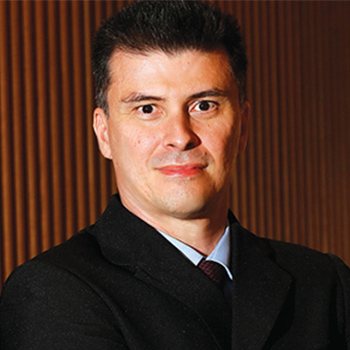
Aristides Andrade Cavalcante Neto
Chief of Cybersecurity and Innovation
Central Bank of Brazil

Laura Loh
Director of Blockchain
Temasek International

Peter Kerstens
Head of the Financial Technology Task Force
European Commission

Sopnendu Mohanty
Chief Fintech Officer
Monetary Authority of Singapore

Neha Narula
Director of the Digital Currency Initiative
MIT

Wolfram Seidemann
CEO
Giesecke+Devrient Currency Technology

Ross Leckow
Senior Advisor Fintech- Strategy and Legal
Bank for International Settlements

Raj Dhamodharan
Executive Vice President
Blockchain/ Digital Asset Products & Digital Partnerships
Mastercard

Jennifer Peve
Managing Director of Business Innovation
DTCC

Tommaso Mancini-Griffoli
Deputy Division Chief
Monetary and Capital Markets Department
International Monetary Fund

Rhomaios Ram
CEO
Fnality

Hester Peirce
Commissioner
US Securities and Exchange Commission

Patricia Mosser
Director, MPA, Economic Policy Management and Senior Research Scholar
Columbia University

Tom Albright
CEO
Bittrex Global
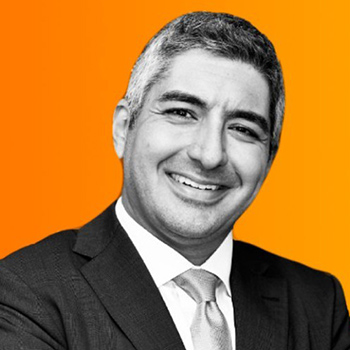
Henri Arslanian
Global Crypto Leader
PwC

Steve Kokinos
CEO
Algorand

Jose Fernandez da Ponte
Vice President, General Manager Blockchain, Crypto and Digital Currencies
PayPal

Richard Budel
Chief Commercial Officer Digital
SICPA

Sky Guo
CEO
Cypherium

Darrell Duffie
Dean Witter Distinguished Professor of Finance
Stanford University

Michael Sung
Professor of Finance
Fudan University

Moad Fahmi
Senior Advisor Fintech
The Bermuda Monetary Authority

Joachim Samuelsson
CEO
Crunchfish

Dmitry Tokarev
CEO
Copper

Natacha Valla
Dean
Sciences Po School of Management and Innovation

Francisco Maroto
Head of Blockchain & Digital Assets
BBVA

Thomas Mayer
Senior Fellow
Center for Financial Studies

Monica Long
General Manager RippleX
Ripple

Ed Bowles
Director of Public Policy
Facebook Novi

James Brennan
Associate Managing Director, Compliance, Risk and Diligence
Kroll

David Creer
Global DLT and Crypto Lead
GFT

Sydney Schaub
Chief Legal Officer
Gemini
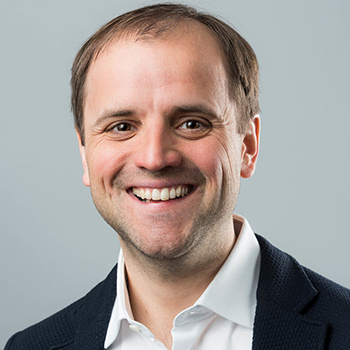
Christian Catalini
Chief Economist
Diem Association
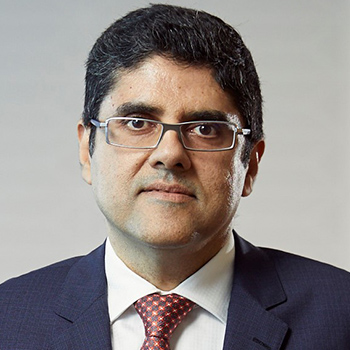
Atul Bhuchar
Executive Director & Group Payments Head
DBS

David Birch
Author and commentator

Anikó Szombati
Chief Digital Officer
Magyar Nemzeti Bank

Mike Novogratz
CEO
Galaxy Digital
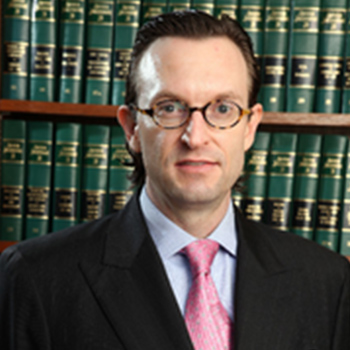
Douglas Arner
Kerry Holdings Professor in Law and
Director of Asian Institute of International Law
University of Hong Kong
David MacKeith
Principal Business Development Manager
Amazon Web Services
Jean Baden Dubois
Governor
Central bank of Haiti
Vsevolod Michalevsky
CEO
OnGrid Systems
Charles Kerrigan
Partner and Global Head of Fintech
CMS
Themes

Central bank
digital
currencies

Crypto assets
and
stable coins

Cross-border governance
of digital currencies

Distributed ledger technology
(DLT) and banking

Tokenisation
of
capital markets
Event at a glance
-
Virtual two-day symposium
-
50+ speakers from OMFIF’s global central banking community
-
2000+ attendees drawn from institutional investors, banks, technology providers
-
Public panels and private roundtables
-
Exhibition stand area; open forums; bilateral meetings
-
Central banks reported directly on CBDC initiatives
-
Industry experts delivered the latest thought leadership
Subscribe to receive the Digital Monetary Institute updates in your inbox, including upcoming meetings, podcasts, reports and the DMI journal
Become a partner in 2022
OMFIF’s DMI Symposium provides an excellent platform for sponsors, to showcase expertise and display leadership in their field, speaking to a global audience of public and private sector representatives. Furthermore sponsors of OMFIF’s DMI Symposium can engage with attendees in bespoke virtual exhibition stands, and interact directly with speakers in private roundtables held during the conference.
If you would like to discuss DMI Symposium partnership opportunities please contact:

Folusho Olutosin
Relationship
Manager
folusho.olutosin@omfif.org
Symposium Steering Group


